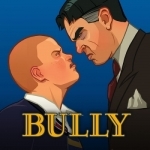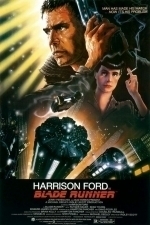
In the Garden of Dandelions
Games and Book
App
Do you sometimes get that feeling of wanting to escape everyday life for a bit? “In the Garden of...

Bully: Anniversary Edition
Games
App
***PLEASE NOTE: This game is officially supported on the following devices only: iPhone 5, 5s, 5c,...

PhotoPlus: the Canon photography magazine
Photo & Video and Magazines & Newspapers
App
*** New look, new name, new content! *** ***FREE 30-DAY SUBSCRIPTION TRIAL – GET OUR LATEST ISSUE...

TechApp for Nissan
Catalogs and Reference
App
This application contains the technical characteristics of cars Nissan, and also the general and...

Tennis Coach Plus HD
Sports and Education
App
Video Analysis for Tennis - Anyone Anywhere Anytime RECORD | COMPARE | IMPROVE your tennis shots ...

Football Coach Plus HD
Sports and Education
App
Video Analysis for Football - Anyone Anywhere Anytime RECORD | COMPARE | IMPROVE your Football...

Power Remote Pro: PPT Clicker
Utilities and Productivity
App
#Support Internet Connection: No need in the same network. Power Remote Pro is a powerful...

Pocket Sergeant - UK Police Guide
Reference and Productivity
App
The award-winning app for police officers, police staff, detention officers, PCSOs, law students,...
Nick Friesen (96 KP) rated Blade Runner (1982) in Movies
Jul 13, 2017
Fast-forward ten years to 1992, when the world received the Director's Cut of the film. At the time, Blade Runner had picked up in popularity through video rental and the international market, and the studio was prompted to release an official Director's Cut after an unofficial version was being made available from a workprint. The Director's Cut was the first introduction to Blade Runner for a whole new generation, including myself.
Fast-forward fifteen more years to 2007, when Ridley Scott brought Blade Runner fans his definitive version of the movie, the Final Cut. Blade Runner: The Final Cut was digitally remastered and reworked by Ridley Scott with complete artistic freedom, whereas the Director's Cut was created by the studio without his involvement. This version fixes some technical problems that persisted from the theatrical version to the Director's Cut, and adds back a little story to better fulfill Ridley Scott's original vision for the film.
If you're looking to get into Blade Runner before Blade Runner 2049 hits theatres in October, the Final Cut is probably the best place to start. It offers the most cohesive viewing experience, complete with restored visuals. Believe me when I tell you there is no movie quite like Blade Runner. Watching Rick Deckard (Harrison Ford) track down and "retire" replicants on the streets of a dystopian Los Angeles awash in neon signs never ceases to fill me with awe. Rutger Hauer's performance as the main antagonist, Roy Batty, is both chilling and thought-provoking, making viewers question what being human truly means.
Blade Runner is now widely considered to be not just the first example of Cyberpunk in film, but also the best. And for good reason, as every frame is a work of art, and the philosophical questions it first posed 35 years ago are still being debated today. Us die-hard fans can only pray the upcoming sequel doesn't completely obliterate the mystery and pathos of the replicant condition.

